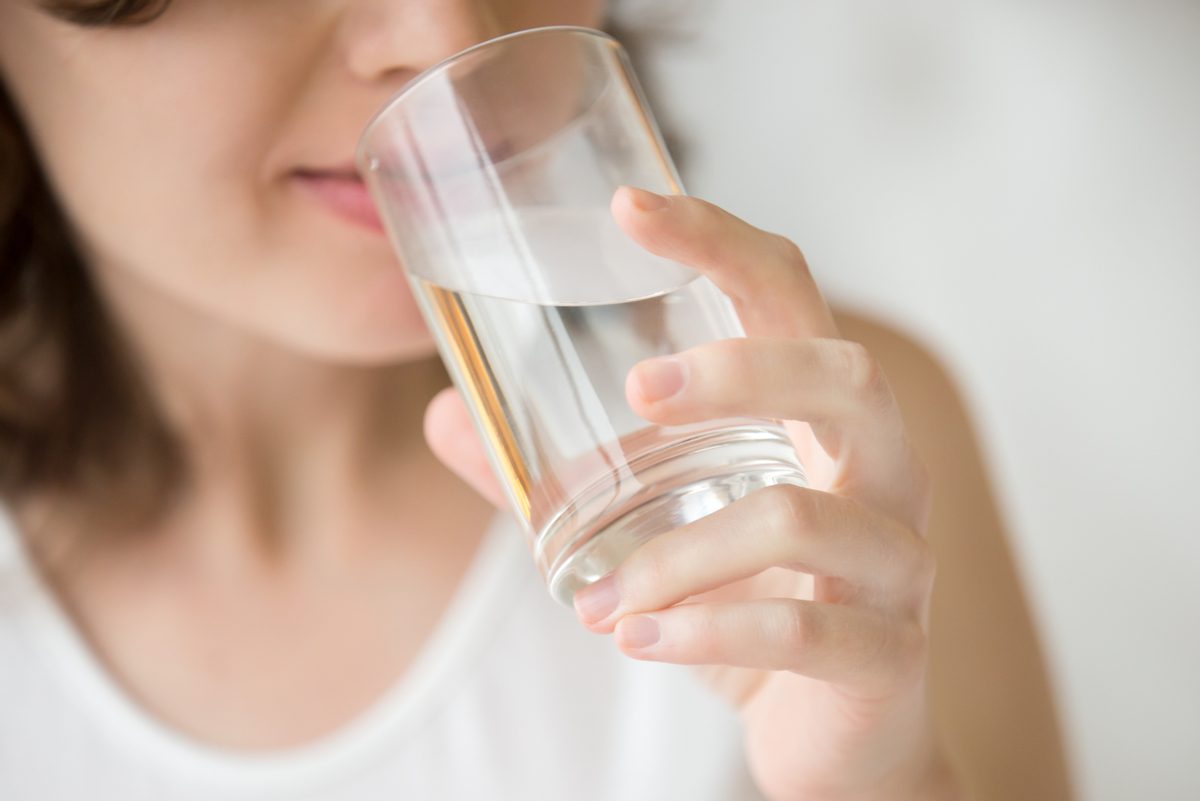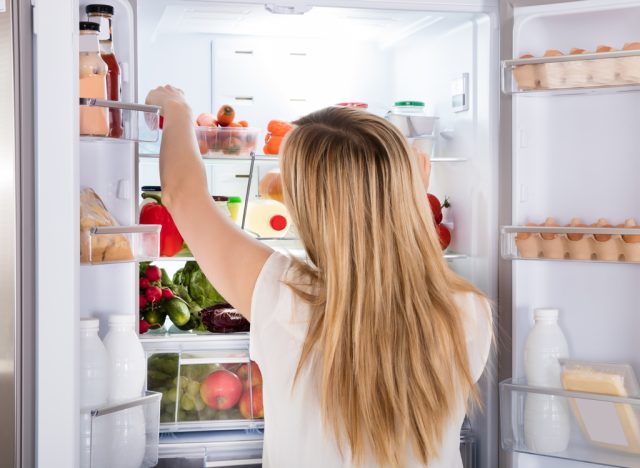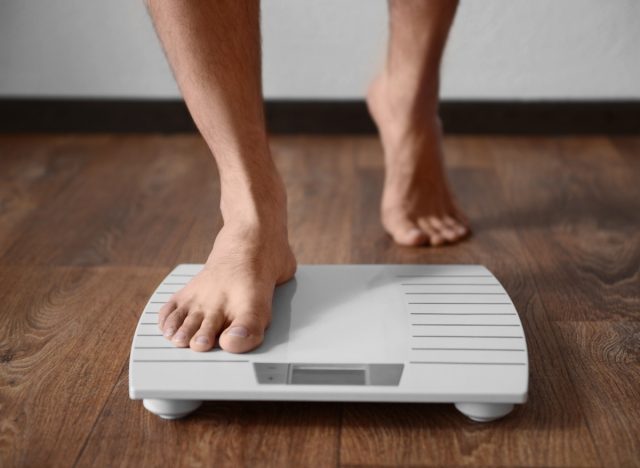What Happens to Your Body When You Don’t Drink Enough Water

An average adult is made up of approximately 60% water by weight. Age, body composition, sex, and health can impact the exact percentage, but the majority of your body is, in fact, composed of water. Water is essential to every system in your body and has an extensive list of functions. For example, water helps your body get rid of waste through urine, assists your body in maintaining a healthy temperature through perspiration, and is a component in the fluid that protects the brain and a developing fetus. These name only a few of the important roles in which water is necessary. Given its integral role in supporting healthy bodily functions, the effects of not drinking enough water could yield undesirable outcomes.
According to the U.S. National Academies of Sciences, Engineering, and Medicine, adult men should consume 15.5 cups of fluid daily while women should aim for 11.5 cups. You may have learned 8 cups per day is a fluid target, and while this is reasonable for some people, the recommended 11.5 to 15.5 cups per day ensures adequate hydration for a wider range of individuals.
Although making sure you drink enough water is one of the best ways to keep hydrated, the good news is water isn’t the only way to boost your fluid intake. In fact, if you find yourself short of this fluid target, all of the liquids you consume in a day can contribute to your hydration. Water, tea, coffee, juice, and milk name a few ways you can hydrate yourself, and fruits and vegetables can assist, too. Melon, celery, cucumber, and tomatoes name only a few varieties of produce that will contribute to your hydration goal.
Because water serves so many functions in the body, it’s no surprise that under-consuming fluids can have significant and worrisome effects. Read on the learn what happens to your body when you don’t drink enough water, and for more, don’t miss What Happens to Your Body When You Drink a Gallon of Water Every Day.
You may feel hungrier

If you are feeling hungrier than usual throughout the day, it may be because you aren’t drinking enough fluid. When you are dehydrated, your body may give you hunger cues to eat more salty or starchy foods that hold onto water in your body. Next time you are about to reach for another handful of crackers, try drinking some water first to see if that satisfies you. While carbohydrate-based food and drink, and electrolytes, like sodium, can aid in hydration, plain ol’ water does the trick, too—and can keep you from consuming excess calories.
You may get headaches
While headaches can be caused by a number of factors, dehydration is a top culprit. Instead of reaching for a pain reliever next time your head is pounding, try chugging some water first. To avoid future headaches, drink water consistently throughout the day rather than waiting for a symptom of dehydration to pop up before downing fluids. As a rule of thumb, if you are feeling thirsty, you may already be behind on your fluids for the day.
You may feel constipated
Fluid helps lubricate joints and tissues in your body, and also assists the passage of contents through your digestive tract. When you aren’t drinking enough fluid, this may slow the process of excreting stool, leading to an uncomfortable build-up. In addition to longer time between bathroom visits, your stool may also harden, which could lead to straining as you go to the bathroom and ultimately increase your risk for hemorrhoids.
You might feel more fatigued

If caffeinated and sugary drinks are your go-to beverages to keep you energized, try swapping some of these drinks for water to boost your energy instead. This could lead to improved hydration and reduce the caffeine and sugar “hangover” you may feel an hour or two after having your drink. While caffeinated drinks can contribute to your overall hydration, they do have a mild diuretic effect, leading to increased urination.
You could increase your risk of heatstroke
Heat cramps, heat exhaustion, and heatstroke are all related to dehydration. While you may associate these conditions with sports, anyone is susceptible to the scary symptoms they produce. A humid, hot environment can exacerbate existing dehydration and increase the chance you experience one of these heat illnesses. Heatstroke can be characterized by hot, dry skin, a high body temperature, and weakness. If you experience any of these symptoms, you should drink fluid and contact a health professional immediately.
Your metabolism may slow down

Drinking enough fluid has so many perks, one of which could be weight loss. The Journal of Clinical Endocrinology and Metabolism documented research that found a 30% increase in participants’ metabolism after drinking approximately 17 ounces of water. Researchers also noted increasing your water intake by 1.5 liters per day could burn an additional 17,400 calories over the course of a year! This can make a big difference in your weight loss goals.
You may have difficulty focusing
Having a hard time keeping your attention on the task at hand? This could be related to your hydration status. Your brain is made of 80% water, and even mild dehydration may impact your memory and attention span, according to research. In fact, more severe levels of dehydration present even more serious neurological symptoms, like confusion and delirium.
Your heart rate might increase
Whether sitting in place working or watching tv, or going for your daily run, if you notice a higher heart rate than usual, it could be related to dehydration. When you don’t drink enough fluid, your heart has to work harder to pump blood throughout your body, resulting in a higher heart rate. To allow your cardiovascular system to work more efficiently, start your day with plenty of fluid and reach for water and other liquids regularly throughout the day.
- Source: https://www.mayoclinic.org/healthy-lifestyle/nutrition-and-healthy-eating/in-depth/water/art-20044256#:~:text=The%20U.S.%20National%20Academies%20of,fluids%20a%20day%20for%20women
- Source: https://www.ncbi.nlm.nih.gov/pmc/articles/PMC2467458/
- Source: https://www.ncbi.nlm.nih.gov/pmc/articles/PMC8280611/
- Source: https://pubmed.ncbi.nlm.nih.gov/14681719/
- Source: https://www.ncbi.nlm.nih.gov/pmc/articles/PMC3553795/
- Source: https://pubmed.ncbi.nlm.nih.gov/19774754/
- Source: https://bmjmedicine.bmj.com/content/1/1/e000239
- Source: https://academic.oup.com/jcem/article/88/12/6015/2661518
- Source: https://www.ncbi.nlm.nih.gov/pmc/articles/PMC6603652/
- Source: https://www.ncbi.nlm.nih.gov/pmc/articles/PMC2343381/